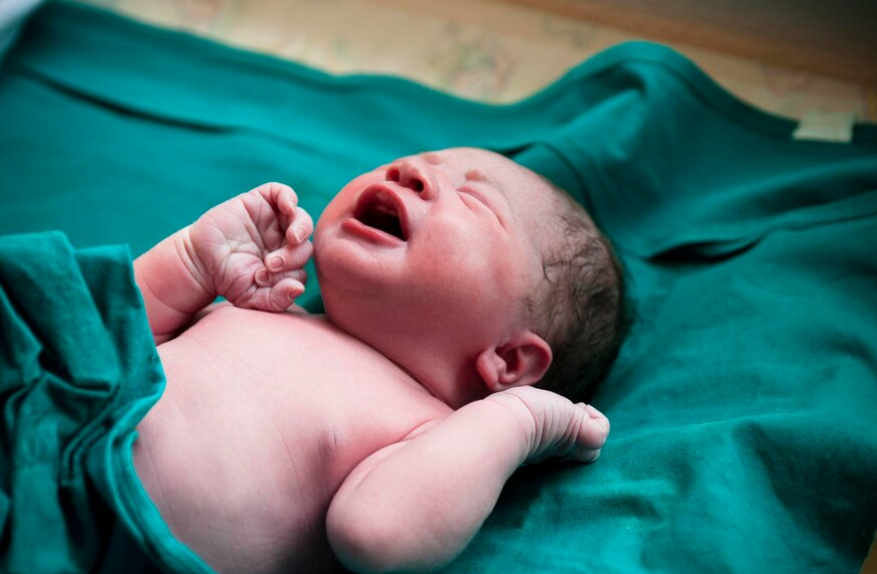Hyperbilirubinemia, commonly known as jaundice, is a frequent and typically harmless condition in newborns that results in a yellowish tint to the skin and the whites of the eyes. Statistics indicate that approximately six out of every ten full-term babies develop jaundice. For preterm infants—those born before 37 weeks—the incidence rises to eight out of ten. In this article, let’s find out everything you need to know about Newborn Jaundice by Dr. Supriya Rastogi
Causes of Newborn Jaundice
Jaundice occurs due to the accumulation of bilirubin in the blood. Bilirubin is a yellow pigment produced during the normal breakdown of red blood cells. In newborns, the liver, which is responsible for filtering bilirubin from the blood, is often not mature enough to handle the bilirubin load efficiently. This condition, known as physiologic jaundice, usually manifests about 24 hours after birth, peaks between the fourth and fifth day, and generally resolves within a week.
In some rare cases, jaundice might result from other underlying issues such as infections, digestive system problems, or blood type incompatibilities between the mother and baby. If jaundice appears within the first 24 hours of life or persists beyond two weeks, it might indicate a more serious condition requiring medical attention.
Is Jaundice Harmful?
Most instances of newborn jaundice are benign and self-limiting, resolving as the baby’s liver matures and the body begins to process bilirubin more effectively. Typically, jaundice becomes noticeable between the third and seventh day of life and gradually fades away.
However, in severe cases, excessively high levels of bilirubin can be toxic, potentially damaging brain cells. This severe jaundice can lead to complications such as deafness, cerebral palsy, or mental retardation if left untreated. Fortunately, early detection and treatment can prevent these severe outcomes.
Diagnosing Jaundice
Doctors often diagnose jaundice based on visual inspection. To assess the severity, they measure bilirubin levels using either a serum bilirubin (SBR) blood test or a transcutaneous bilirubinometer, which evaluates the light passing through the skin.
If jaundice persists beyond two weeks, additional tests, including blood and urine tests, may be conducted to identify any underlying conditions. For healthy, breastfed babies who are feeding well and gaining weight appropriately, this prolonged jaundice is sometimes normal and referred to as breast milk jaundice.
Treating Newborn Jaundice
Most jaundice cases in newborns do not require medical intervention and will resolve on their own within 10 to 14 days. However, if bilirubin levels exceed the normal range, treatment is necessary.
Two primary treatments can be administered in a hospital setting:
- Phototherapy: This involves using a special type of blue light that transforms bilirubin into a form more easily excreted by the baby’s liver.
- Exchange Transfusion: In severe cases, the baby’s blood is replaced with donor blood to rapidly reduce bilirubin levels.
It’s important to note that treating jaundice at home by exposing the baby to sunlight is not safe. Phototherapy involves controlled, specialized lights in a clinical setting to ensure safety and effectiveness.
Supporting Your Baby at Home
Parents play a crucial role in managing their baby’s jaundice:
- Monitor Skin Color: Check your baby’s skin color twice daily. If your baby has dark skin, focus on the whites of the eyes.
- Follow-Up Tests: Ensure your baby attends all recommended follow-up appointments and tests.
- Seek Medical Advice: Contact your pediatrician if the yellow coloration intensifies after the baby is three days old.
- Adequate Feeding: Ensure your baby is well-fed. Frequent feeding helps the body eliminate excess bilirubin. Breastfed babies should feed 8 to 12 times in 24 hours, while formula-fed babies should have 1-2 ounces every 2-3 hours.
Savera Child Clinic: Expert Care for Newborn Jaundice
Savera Child Clinic in Faridabad is renowned for its comprehensive care for newborns, particularly in managing jaundice. With a dedicated 24-hour NICU staffed by pediatricians and neonatologists, the clinic offers advanced treatment options, including LED phototherapy and bili blankets. This ensures that newborns receive the best possible care in a safe and nurturing environment.
In conclusion, while jaundice is common in newborns, understanding its causes, recognizing symptoms, and knowing when to seek treatment can ensure your baby’s health and well-being. With the right care and support, most babies recover from jaundice quickly and without complications.

